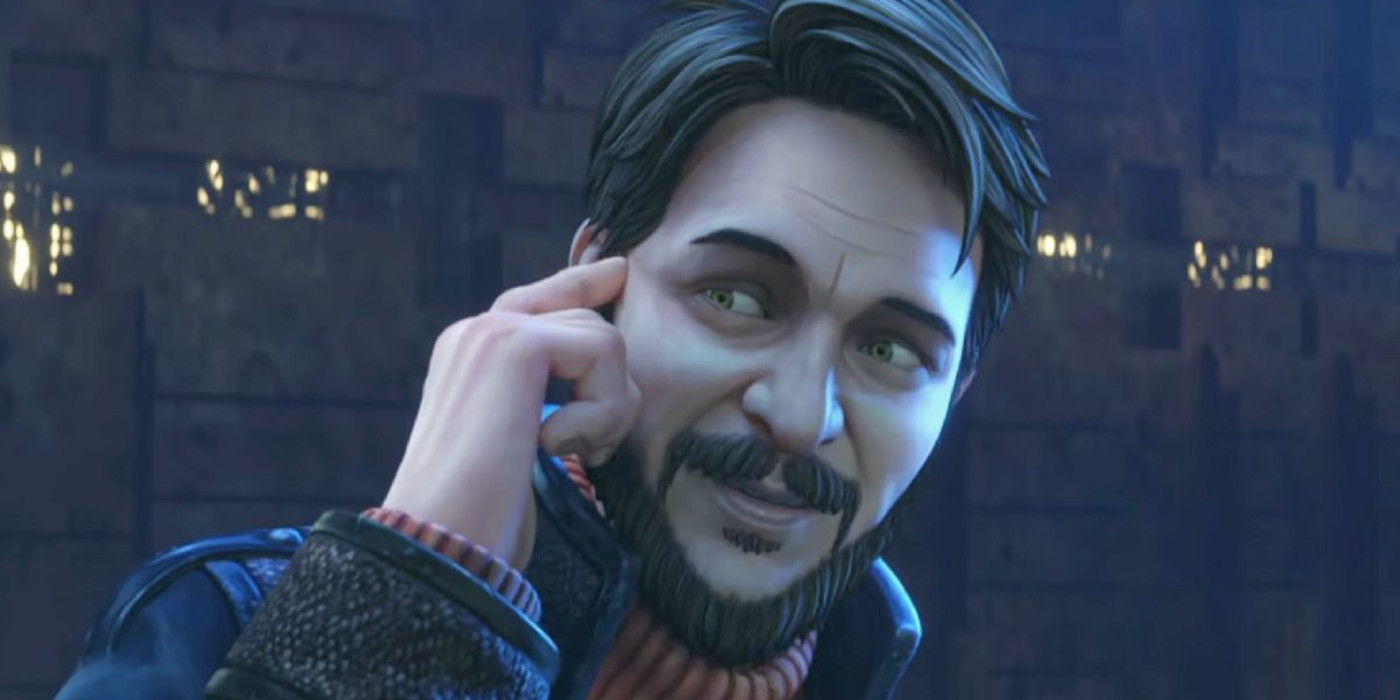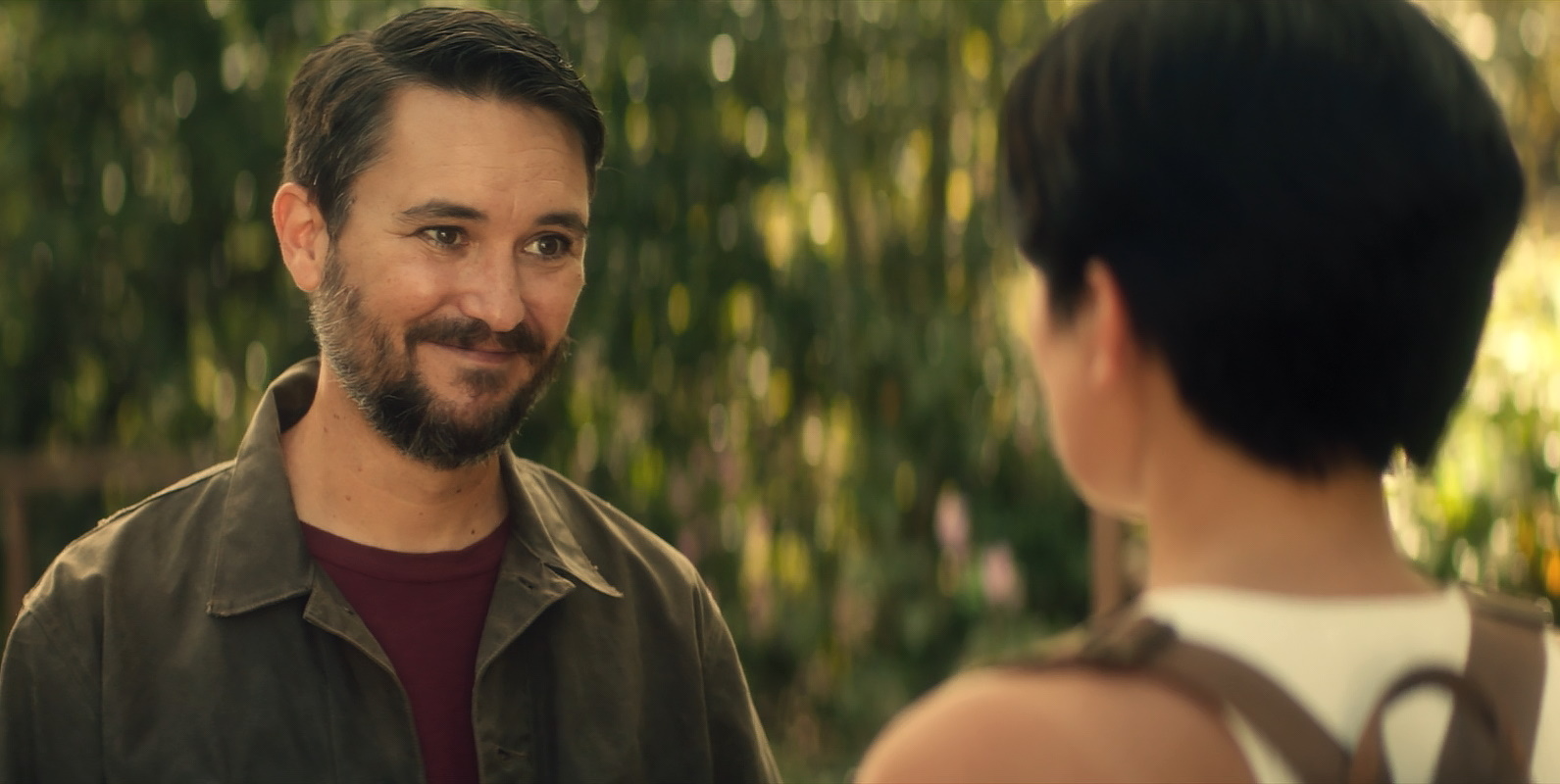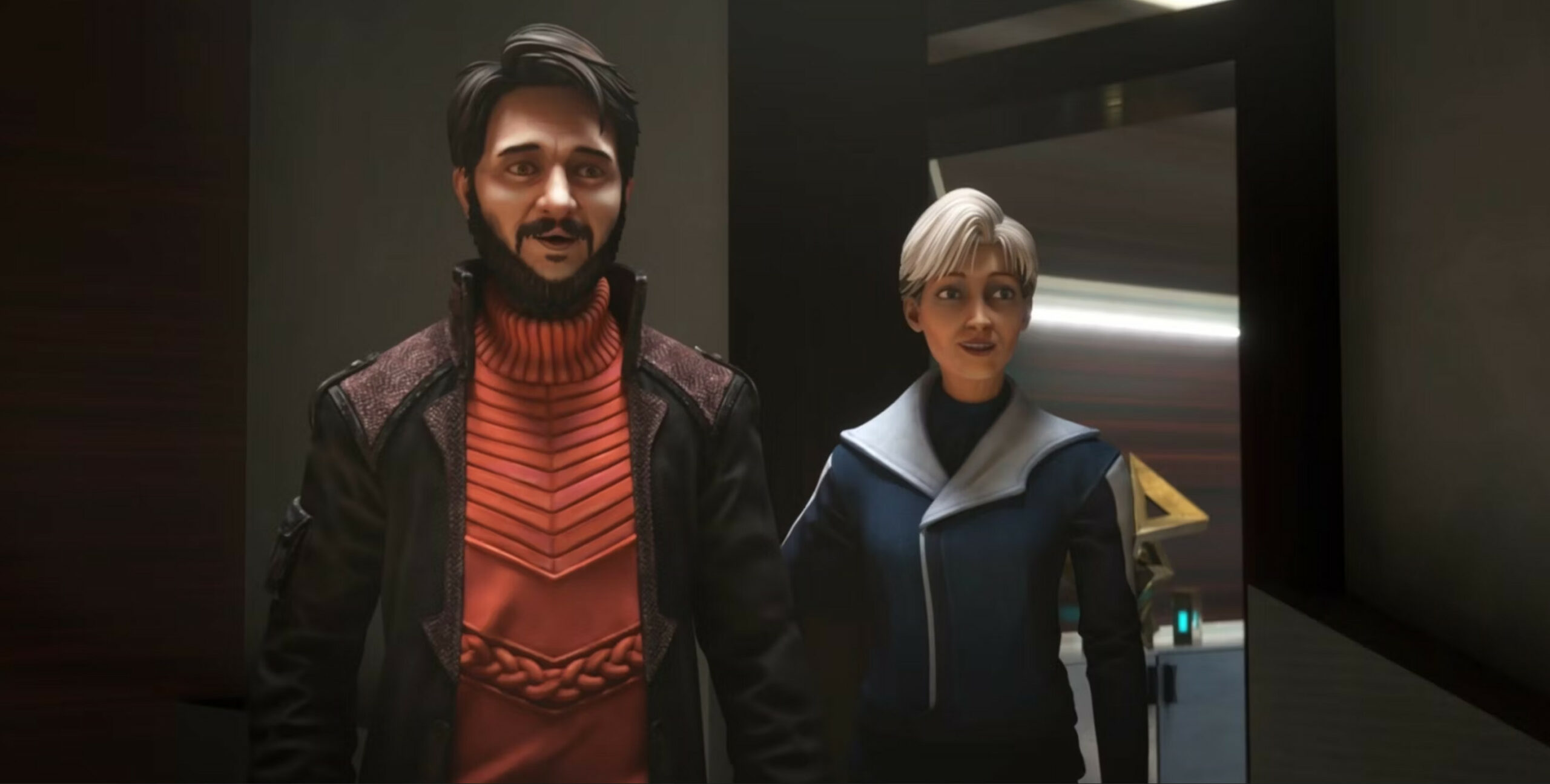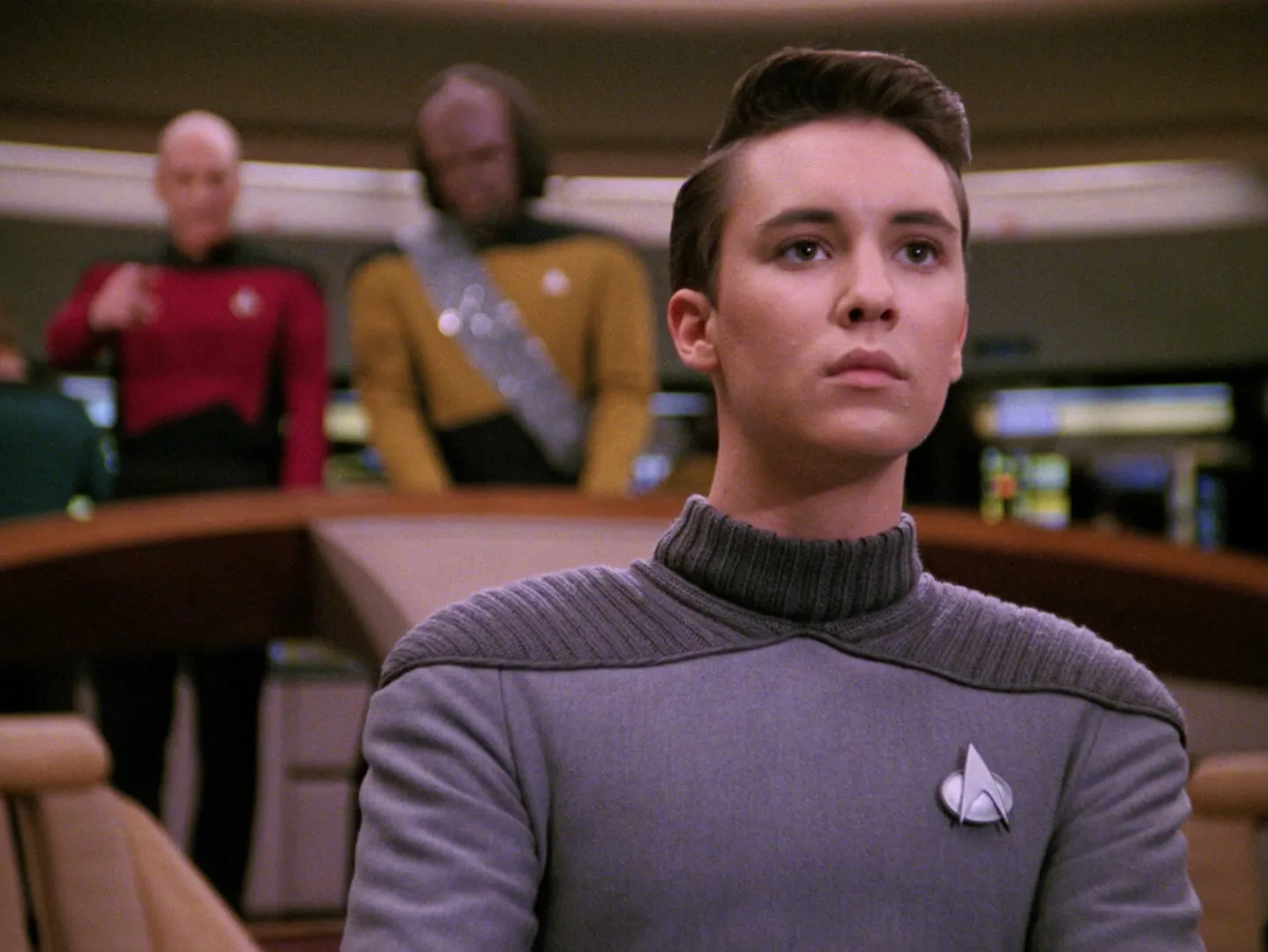Wesley Crusher Returns to ‘Star Trek’ For More Than Just Redemption

Thirty seven years after his debut, Wesley Crusher returns for Star Trek: Prodigy. People call this redemption. It’s so much more than that.
Historically, Wesley Crusher is one of the more infamous figures in Star Trek. Originally, he’s the entry point for younger viewers of Star Trek: The Next Generation. However, for decades after, Wes became one of Trek fandom’s favorite punching bags. The chronic over-achieving kid who constantly outsmarts the adults while making himself a damn nuisance was never destined to be well-liked by fans. At least not at first.
Over the years we see that slowly change. For those of us who were kids when TNG first aired, there is an ability to look back and see Crusher as we saw ourselves: kids desperately wishing to be a part of the Enterprise crew. But, look, let’s be honest: for a lot of people the first thing they think of when it comes to Wesley Crusher is that meme where Captain Picard says, “Shup up, Wesley!”
Until now.
Wesley Crusher is back and a part of the Star Trek: Prodigy family. Since this is a show full of young, upstart cadets, it makes perfect sense for Wesley to to turn up and mentor them as the OG upstart cadet. And since the writing for Crusher is so strong here, a lot of people say this is his redemption—and it is. But it’s more than that. This is also the chance to complete a very long journey for Wesley Crusher.
This is a story where Wesley Crusher learns he isn’t alone. And that’s one of the most needed stories of all. Let’s talk about.
Wesley Crusher: Lonely Boy
Wesley is a genius. He’s so smart that an alien being called the Traveler makes a point of saying that Wes is so special that there’s no one other human like him. And, so, even in a ship full of people, Wes is alone. And we see the consequences of that manifest everywhere. Wes alienating himself by taking over the ship in “The Naked Now”. Wes somehow landing in the wrong place in “Justice” and alone being sent towards the death penalty.
Although he has healthy relationships, Wes remains an outsider. He’s smart, but not analytical or emotionless like Data. Worf’s son Alexander is too young to befriend Wes and the rest of the crew is too old. And while his mother Beverly loves him unconditionally, she doesn’t quite understand Wesley. And besides, like all maturing children, Wes needs to discovery himself outside of his relationship with his mother.
Unfortunately, at Starfleet Academy things don’t go much better. In “The First Duty” Crusher finds what he thinks is community in Nova Squadron. But instead he’s manipulated by Squad leader Nicholas LoCarno and winds up partially responsible for the death of cadet Joshua Albert. Even back on the Enterprise, Crusher ultimately finds himself alone as he faces off against his own friends in “The Game“.
Wesley Crusher leaves with the Traveler in “Journey’s End” because, even though his mom loves him, he still sees the universe in ways she cannot understand. And that’s the last we (officially) see of him until now.

Courtesy of Paramount Plus
Picard and Prodigy
Wesley returns twice in this, our new era of Star Trek. First he appears in the season 2 finale of Star Trek: Picard where he recruits Kore Soong to join the Travelers. There we get the sense of his galactic importance. Wesley must always watch all of time, space, and thought in order to know when, where, and how to step in. He keeps the tapestry of the universe from untethering. But even in recruiting Kore there is a sense of loneliness, as though each Traveler acts alone, even together.
But it’s Prodigy which really gives Wesley Crusher’s story the closure it needs. Throughout the show’s second season, Crusher acts kind of like the Doctor from Doctor Who. He assists, the Prodigy cast as they struggle to keep time in joint. His most important advice, however, is that they remain together. In the practical sense, that means they need each other to save the day. But really, Wesley, just wants these kids not so unlike himself to remain connected. To never feel alone.
And in Wesley’s final moments on Prodigy, he pulls himself away from his responsibilities to see the person who needs him most: his mother. At this point in time, Beverly is alone. She’s purposefully chosen to isolate herself from all her friends to raise the son no one knows she even has. Who better to remind her that it is okay to be alone than Wesley? Who better to remind Wesley he is never truly alone than Beverly?
In fact, more than anything; more than redemption or closure, it’s this relationship between Wesley and Beverly that makes both Crushers return so essential.

Courtesy of Netflix
Wesley Crusher: Catharsis Boy
Wesley Crusher is different from anyone else. That much is true. And the thing about being different from all the people around you is that it means feeling like you don’t belong. Even in Wes’s case where Beverly as well as his chosen family on the Enterprise all accept him, they can’t truly know him. And that is alienating.
We all go through certain doors in our travels alone. But Wesley, like some of us, starts to feel like every journey is a solitary one. It can be hard to tell when that’s be nature or by choice.
In Star Trek: Picard season 3 we find out Beverly is not so different from her son Wesley after all. She, too, walks through door after door alone. But even though Wesley can never stay, he can always visit. Wes and Beverly are a family often divided, but they also represent the hope of reunion, temporary though it may be.
And in this life, there is nothing more valuable. Many of us remain forever separate from our families, even our parents. But if Star Trek is a franchise built on hope, then Wesley’s story is one that dares us to believe that there may be moments still where reunion is possible. Even the loneliest among us still has cause to hope.
Wesley Crusher is alone until he isn’t. That isn’t redemption or closure. It’s just a reminder that in this way, too, there are infinite possibilities in infinite combinations.






